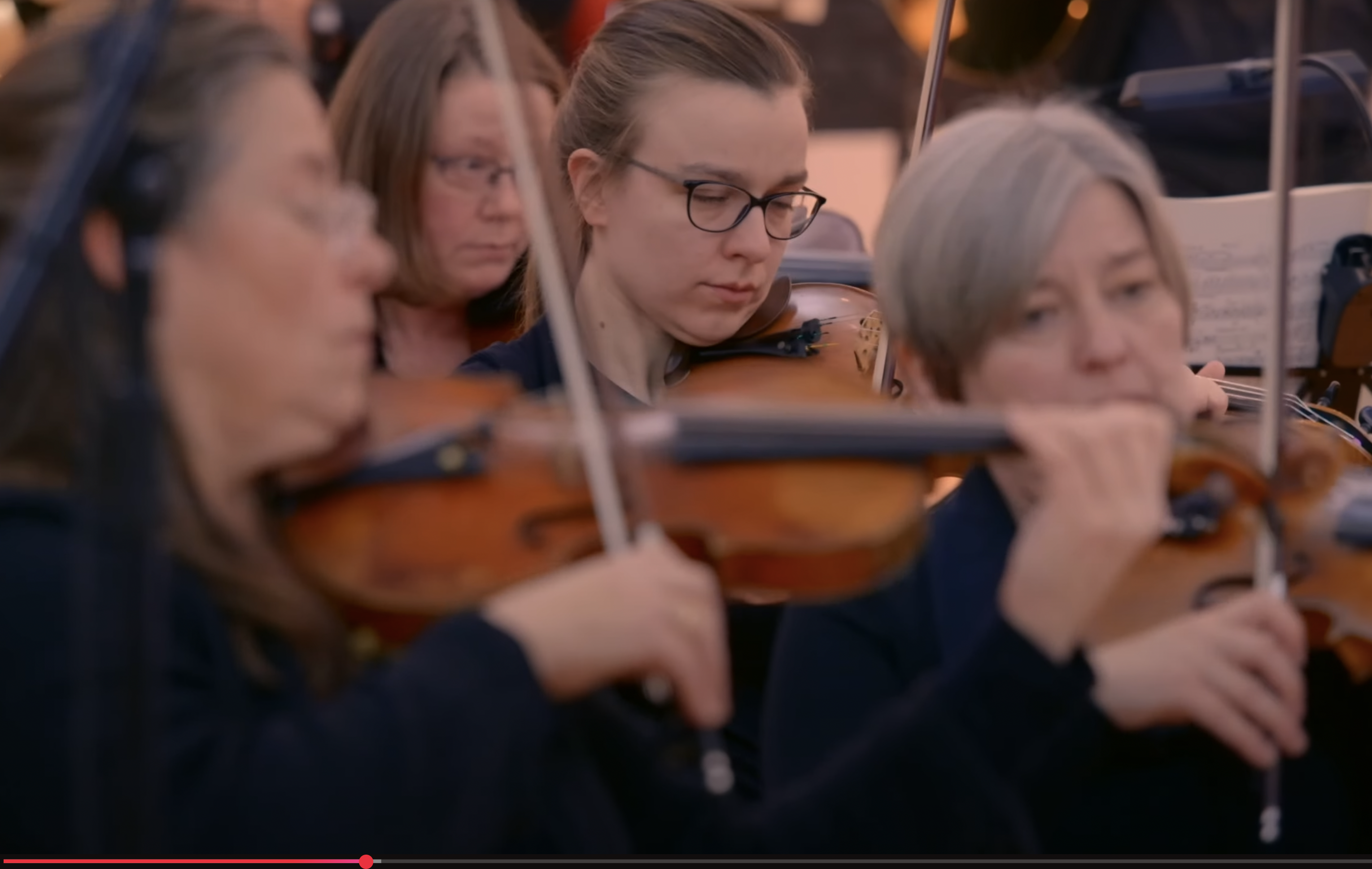Support our work – click here to donate
Want to view the full concert?
ESO Digital Supporters get access to our concert archive and other exclusive content. Please click here for more information, or sign in to your account below if you’re already registered.
Already a supporter? Click here to log in.
Programme
Bartók Bluebeard’s Castle
– Orchestration by Christopher van Tuinen
– Revision by Michael Karcher-Young
Artists
English Symphony Orchestra
Conductor: Kenneth Woods
– Click here to view the Orchestra List
Soloists: April Fredrick (Judith) / David Stout (Bluebeard)
About this Concert
The ESO complete their first year of Music from Wyastone virtual concerts with a concert performance of Bartók’s one-act opera, Duke Bluebeard’s Castle, written in 1911.
The performance, which premieres on ESO Digital at 7:30 PM on the 13th of August, marks the first performance of a new arrangement of the opera by the Australian conductor and arranger, Chris van Tuinen, revised by the ESO’s Assistant Conductor, Michael Karcher-Young.
The work is sung in Hungarian and will have English subtitles.
Discover More
About the Music - An old tale re-imagined
Bartók’s opera is based on a libretto by the Jewish-Hungarian writer and critic, Béla Balázs. Balázs wrote the libretto for their mutual friend, Zoltán Kodály. Bartók was spurred to set the libretto by a competition, which he lost. The opera languished without a performance for several years, causing Bartók to lament to his wife, Márta to whom he dedicated the opera) ends: “Now I know that I will never hear it in this life. You asked me to play it for you—I am afraid I would not be able to get through it. Still I’ll try so that we may mourn it together.”
In Balázs and Bartók’s re-telling of the Bluebeard legend, the title character is, in Bartók’s words, “not a murderer. The images of the Castle are allegorical pictures of the soul.” Bartók also said that the work was a “soul ballade” which expresses “the tragedy of a soul destined to be alone.” The work mourns the way in which “the holy feeling of love dies by becoming every-day. His loves live, but no longer in his life.”
About the Soloists - A Jane Eyre Reunion
The ESO performance of Bluebeard’s Castle reunites soprano April Fredrick as Judit and baritone David Stout as Kékszakállú (Bluebeard). Fredrick and Stout led the cast for the world premiere of John Joubert’s opera Jane Eyre with the ESO in 2016. That performance was named Classical Music Magazine Premiere of the Year and was chosen as the Birmingham Post’s Classical Highlight of 2016. The Somm Records recording of Jane Eyre was later chosen as Opera Recording of the Year by Music Web International.
“Vocally, David and April are just perfect for these two roles, which in many ways fall in between the cracks of our normal voice types. Both roles need a mix of power and lyricism, and ease and projection at both the extreme upper and lower end of their registers,” says conductor Kenneth Woods. “But aside from their vocal and musical qualities, I was fascinated by the connections between Rochester and Jane and Bluebeard. Both Jane Eyre and Bluebeard’s Castle deal with the limitations of intimacy, and it’s not hard to imagine the ending of Jane Eyre segueing into the beginning of Bluebeard.”
David Stout - Kékszakállú (Bluebeard)
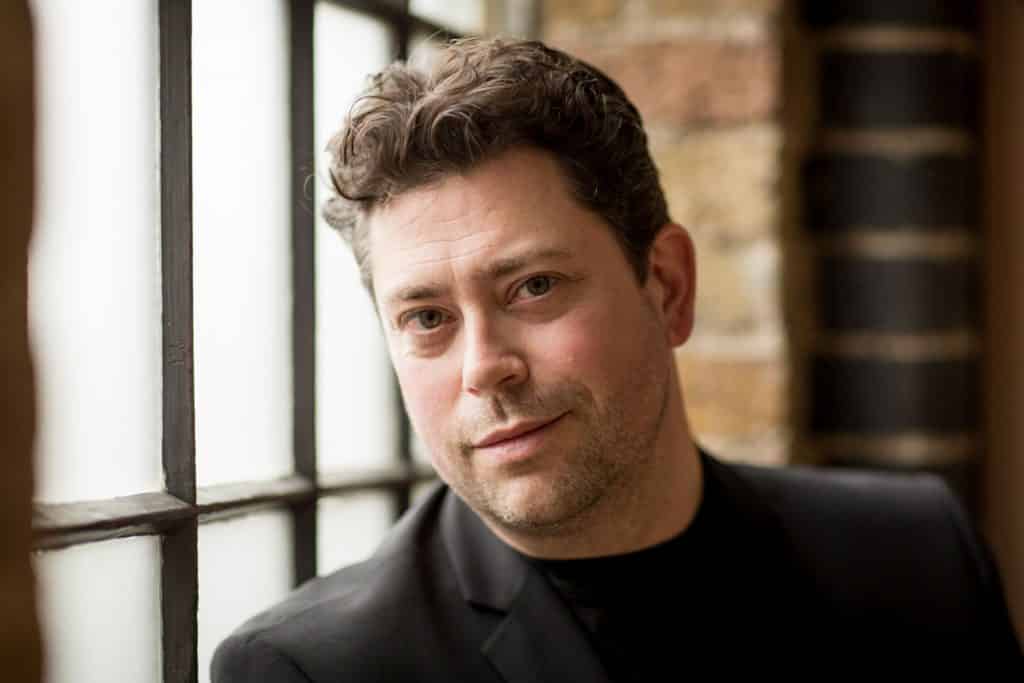
Intermusica
A former Head Chorister of Westminster Abbey, David studied Zoology at Durham University, sang with the choir of St. John’s College, Cambridge University and studied Opera at the Guildhall School of Music and Drama with Rudolf Piernay.
Operatic roles include Leporello Don Giovanni, Figaro Figaro Gets a Divorce (Grand Théâtre de Genève and Welsh National Opera); Figaro Le Nozze di Figaro and Fritz Kothner The Meistersinger (English National Opera and Welsh National Opera); Papageno Die Zauberflöte (Welsh National Opera); Dr Bartolo Il Barbiere di Siviglia (Oslo); Robin Oakapple Ruddigore (Opera North); Marcello La Bohème and Dulcamara L’Elisir d’amore (Sankt Gallen); Marcello La Bohème, Henry Kissinger Nixon in China, Renzo Silvano and Frank Edgar (Scottish Opera); Gratiano The Merchant of Venice, Napoleon War and Peace and Roucher Andrea Chenier (Royal Opera House, Covent Garden); Angelotti Tosca and Sancho Pança Don Quichotte (Bregenz Festival); Rodrigo Don Carlo and Ford Falstaff (Grange Park Opera); Oxenstjerna Cristina di Svezia and Count Douglas Guglielmo Ratcliff (Wexford Festival); Don Pasquale (title role) for Longborough Festival.
Discography includes Haydn’s The Creation with New College, Oxford and also with Musica Saeculorum; Lieder eines fahrenden Gesellen with Orchestra of the Swan; Wolf Eichendorff Lieder with Sholto Kynoch; Arthur Sullivan’s The Beauty Stone (Chandos); Zaza and Le Duc d’Albe (Opera Rara); John Joubert’s Jane Eyre (SOMM); and Donner Das Rheingold (Hallé).
On the concert platform he has recently performed Bartok’s Bluebeard with ESO, The Dream of Gerontius with the Polish National Radio Orchestra in Katowice and BBC Live from King’s College, Cambridge; The Messiah in Madrid; his Concertgebouw debut as The Dark Fiddler in Delius’ A Village Romeo and Juliet; Aeneas Dido and Aeneas with the English Concert in Lausanne; Belshazzar’s Feast, A Sea Symphony and Verdi’s Requiem with the Royal Philharmonic Orchestra; Peter The Apostles with The Philharmonia at the Royal Festival Hall; Brahms’s Ein deutsches Requiem with the Hallé Orchestra; and Mozart’s Requiem with the Bournemouth Symphony Orchestra. He is also a regular performer at the Three Choirs Festival.
Forthcoming roles include Stárek Jenufa (Royal Opera House, Covent Garden); Barnaba La Gioconda (Grange Park Opera); he revisits Figaro (Divorce) and Sancho (Don Quichotte) in Magdeburg and Darmstadt in the New Year. David is also the author of the Eagle and Mountain in ‘The Enlightened’ Series.
April Fredrick - Judit (Judith)
The ESO (English Symphony Orchestra/English String Orchestra) have announced the appointment of American-born soprano April Fredrick as the orchestra’s first Affiliate Artist. Fredrick will be one of several leading artists to work with the ESO in long-term partnership as part of the new scheme.
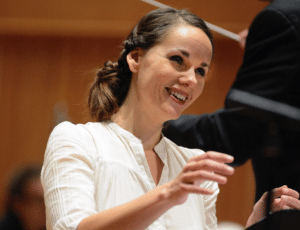 “Working in collaboration with our fellow artists has been one of the biggest contributing factors to the ESO’s success over the last few years,” said ESO Artistic Director Kenneth Woods. “We’ve always believed that it’s better to build strong working relationships with soloists and composers we respect and enjoy working with over time than to simply populate our concerts with a bunch of one-off appearances by artists who, however gifted, never spend enough time with the orchestra to really create a rapport.”
“Working in collaboration with our fellow artists has been one of the biggest contributing factors to the ESO’s success over the last few years,” said ESO Artistic Director Kenneth Woods. “We’ve always believed that it’s better to build strong working relationships with soloists and composers we respect and enjoy working with over time than to simply populate our concerts with a bunch of one-off appearances by artists who, however gifted, never spend enough time with the orchestra to really create a rapport.”
April Fredrick: “I first heard the ESO’s recordings many years ago as a teenager in Wisconsin, and I was struck then by its passion, flexibility, and precision. As a performer, I have found the orchestra a sheer joy to work, and I am absolutely delighted to have the chance to develop that relationship further. I have also been deeply impressed by the vibrancy and power of its performances, full of an equal depth of thought and feeling, under Kenneth Woods. I am incredibly excited at the prospect of being able to collaborate long-term with such wonderful and dynamic thinkers and musicians to re-imagine old works and models and create new ones that speak afresh to today’s world”.
Woods also explained that the new scheme is about more than simply inviting the same artists to appear over and over again on concerts. “The Affiliate Artist scheme is about strategic and creative partnership. It’s about finding artists we can work with to commission new works, develop new projects, reach new audiences and create new recordings.”
One of Fredrick’s most ambitious projects with the ESO is “The Hour of Love and Death”- an immersive multi-media staging of Shostakovich’s 14th Symphony in which Fredrick is appearing as soloist alongside current ESO Artist-in-Association Matthew Sharp and serving as Executive Producer. “A large part of my inspiration to create The Hour of Love and Death came from knowing Matthew and April as singers,” said Woods. “In fact, the very first project April and I did was a performance of Shostakovich 14. I could immediately see that she was one of those rare sopranos who have the voice for this formidable work, but that she also brings communicative gifts, movements skills and theatrical presence to the piece that opened up the possibility of taking this work to a whole different level. The same is true of Matthew Sharp, who also brings vast experience as a theatrical and operatic director to the project. In her capacity as Executive Producer, April has further expanded the project’s creative scope and public engagement. This is exactly the sort of strategic cooperation that I hope the new Affiliate Artist scheme will help us develop.”
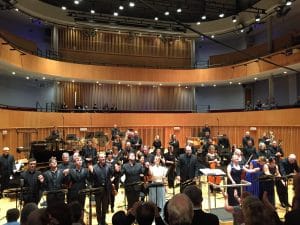 Fredrick made her debut with the ESO in the arias from Beethoven’s Incidental Music to Goethe’s Egmont in 2015 and created a nationwide sensation among critics and music lovers when she sang the title role in the world premiere performance and Somm recording of John Joubert’s opera Jane Eyre in 2016. More recently, she gave the London premiere of Philip Sawyers’ Songs of Loss and Regret, a performance of which Robert Matthew-Walker wrote in Classical Source that “a considerable compliment was paid to the composer by the exceptional April Fredrick who sang superbly throughout without a score. For an artist of this quality to memorise the music is itself an indication of her view of the work’s stature.” Her upcoming ESO projects also include Mahler’s Fourth Symphony with Kenneth Woods in February, 2018.
Fredrick made her debut with the ESO in the arias from Beethoven’s Incidental Music to Goethe’s Egmont in 2015 and created a nationwide sensation among critics and music lovers when she sang the title role in the world premiere performance and Somm recording of John Joubert’s opera Jane Eyre in 2016. More recently, she gave the London premiere of Philip Sawyers’ Songs of Loss and Regret, a performance of which Robert Matthew-Walker wrote in Classical Source that “a considerable compliment was paid to the composer by the exceptional April Fredrick who sang superbly throughout without a score. For an artist of this quality to memorise the music is itself an indication of her view of the work’s stature.” Her upcoming ESO projects also include Mahler’s Fourth Symphony with Kenneth Woods in February, 2018.
Hailed as ‘astonishing and luminous’ (Bachtrack), soprano April Fredrick grew up in rural Wisconsin and trained first as a violinist before studying voice at the University of Northwestern St Paul in Minnesota. She went on to study at the Royal Academy of Music, where she gained an MMus in Vocal Performance and a PhD on the late songs of Ivor Gurney, singing with the Historical Performance department under Laurence Cummings, premiering works by Academy composers, and frequently appearing as part of the Lyric Song Salon.
Her first two discs on the SOMM label, of Barber Knoxville: Summer of 1915 and Copland 8 Songs of Emily Dickinson with the Orchestra of the Swan and Earth’s Call, John Ireland songs with pianist Mark Bebbington, have been described as full of ‘humane and vulnerable’, with ‘creamy timbre and velvet strength’, (MusicWeb), where ‘not the slightest distance can be felt between her and the texts’ (Gramophone).
Other recent performances include Barber Knoxville: Summer of 1915 with the Cheltenham Symphony Orchestra, Mahler Symphony 4 with the Warsaw Philharmonic, the world premiere of Philip Saywer’s Songs of Loss and Regret with the English Symphony Orchestra (forthcoming on Nimbus Records) in Hereford Cathedral, and Strauss’s Vier Letzte Lieder with the Blackburn Symphony Orchestra.
Upcoming work includes, Brahms Requiem and Strauss’ Vier Letzte Lieder with the Nottingham Harmonic Society and the world premiere of a new song-cycle by David Matthews.
Christopher van Tuinen - orchestrator
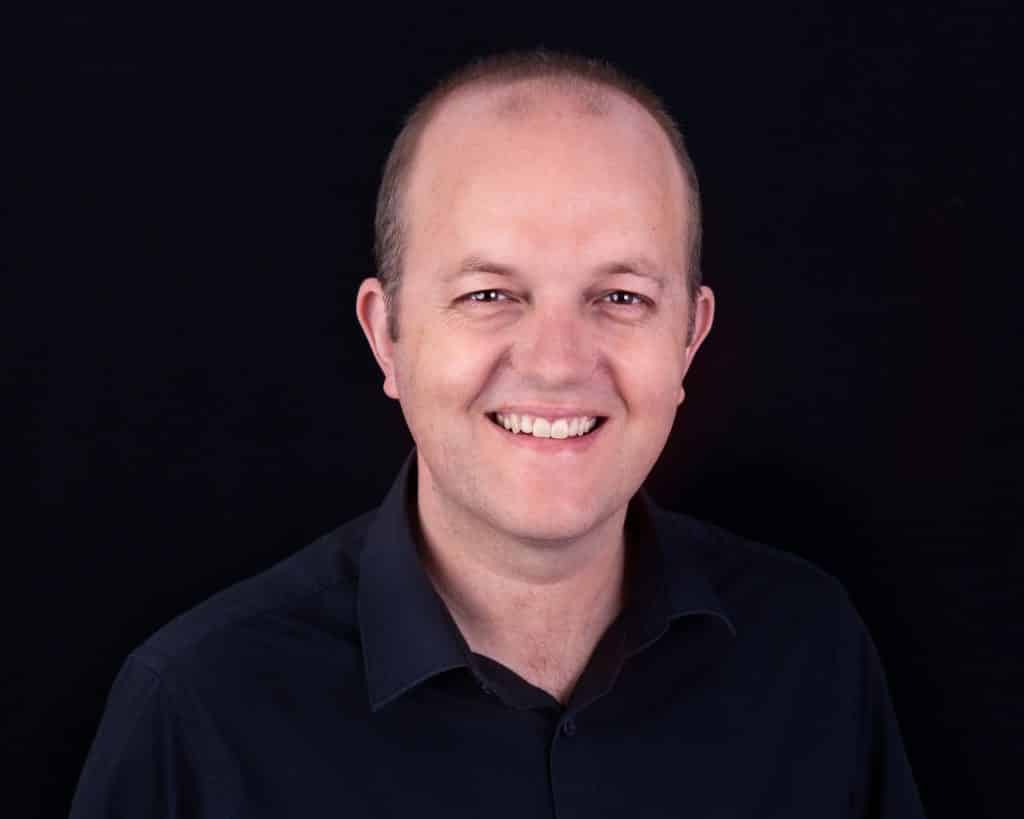
Christopher graduated with a B.Mus from the Victorian College of the Arts in 2001. In 2005 he completed a Masters in Conducting at the VCA.
Experienced in both vocal and instrumental music he was awarded the John Williams Conducting Scholarship for 2004-5. He also holds a B.A. from the University of Queensland, an LLB from Q.U.T. and an A.Mus.A from the AMEB. He has been nominated by the Musical Theatre Guild for Best Music Direction and received a Green Room Award nomination in the ‘Best Conductor’ category.
During 2008 and 2009 he was a member of the Young Artists program as a Conductor with Opera Australia. In 2007 Chris was appointed as the inaugural
Conducting Fellowship at the Australian Ballet. He has worked with the WASO, Orchestra Victoria, AOBO and the QSO. His previous roles include WA State Manager for Musica Viva, Classical Music Program Manager for Perth Festival, Chorus Director for WASO, Conductor of UWACS, Musical Director of Fremantle Chamber Orchestra and Artistic Director of Lost & Found Opera.
Chris is currently the Artistic Director of West Australian Opera.
Michael Karcher-Young - ESO Assistant Conductor (revision)
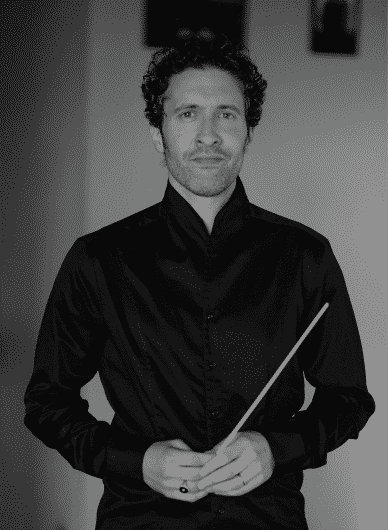 Winner of the Audience Prize at the Leeds Conductors’ Competition for his “electric conducting”, Michael Karcher-Young combines an innate musicianship with a visceral presence on the podium, and is a passionate advocate for classical music.
Winner of the Audience Prize at the Leeds Conductors’ Competition for his “electric conducting”, Michael Karcher-Young combines an innate musicianship with a visceral presence on the podium, and is a passionate advocate for classical music.
Michael’s revision of Christopher van Tuinen’s orchestration of Bartok’s Bluebeard’s Castle is of a piece with his growing reputation as an orchestrator and editor, having worked on symphonic music by David Matthews, Steve Elcock, Adrian Williams and Kenneth Woods; John Joubert’s magnum opus opera ‘Jane Eyre’ and the art-song of Undine Smith-Moore and Florence Price.
Since the pandemic began he has amassed following of over 10,000 on Tiktok with his irreverent takes on conducting, piano and music in general. He continues to teach online to students of all ages and thrives on sharing his love and passion for what makes music really work with each student.
Michael is Artistic Director and co-founder of the Beethoven Orchestra for Humanity, formed around a new vision of the orchestral concert in today’s world. The inaugural crowdfunded performance was a sell-out and universally acclaimed and plans are well underway to realise this in a post-pandemic world. He was appointed Assistant Conductor of the English Symphony Orchestra in 2017 where Michael enjoys a close relationship with key British contemporary composers whose work the orchestra extensively performs and records to great acclaim.
Reviews
Arcana.fm - 12th August 2021
Richard Whitehouse
https://arcana.fm/2021/08/12/eso-bluebeards-castle/
The English Symphony Orchestra’s season of online concerts drew to its close tonight with a performance of Duke Bluebeard’s Castle, the only opera by Bartók and seminal work on the cusp between the late-Romanticism and nascent Modernism from the early twentieth century.
While its libretto by Béla Balázs is susceptible to interpretation, that concerning the ultimate impossibility of meaningful human communication is surely the decisive factor for Bartók’s setting of what became his longest work and his most explicitly personal statement. Yet this emotional scope never results in a lack of formal cohesion or expressive focus, ensuring that the duo-drama unfolds both inevitably and inexorably towards a fateful denouement that – by no means coincidentally – brings the piece full circle in terms of its underlying introspection.
A piece, then, of epic sweep but whose climactic moments only rarely dominate music that is (surprisingly?) well suited to reduction of a kind undertaken here by Christopher van Tuinen and revised by Michael Karcher-Young. The 25-strong ESO copes ably with those undulating contrasts in mood and texture that underpin the traversal of the protagonists through the castle and its environs, through to a culmination whose outcome feels no less tragic for having been ordained almost from the outset – a fable of disillusion whose impact comes across unscathed.
Of course, such considerations are relative to the success of the two singers in conveying the range of their respective roles. Whether or not she had previously sung that of Judith, April Fredrick has its full measure as she moves from confidence, via wariness and imploration, to reluctant acceptance of the part she must play in the completion of a journey that other wives have undergone before her. Rendered with vibrancy but no lack of finesse, this is a perceptive assumption, and one which Fredrick will hopefully be able to repeat on stage before too long.
Not that David Stout is necessarily upstaged in his portrayal of Bluebeard – emerging here as no misogynist, still less a murderer, than a conflicted figure whose avowals of love can never outweigh those inherent failings of self that have led to his repeating the same pattern of loss as before. Having previously taken on the spoken Prologue with thoughtful anticipation, Stout projects the role with no mean impetus as well as a keen eloquence that comes to the fore in those fateful later episodes when the sixth and seventh doors have almost to be prized open.
Otherwise, the ESO plays to its customary high standards throughout a score which, if never as radical as works of this period by Schoenberg or Stravinsky, remains a testing assignment with the integration of overtly expressionist tendencies into music of a Straussian opulence. This reduction loses little in either respect, due notably to a piano part as achieves more than textural filling-in then a harmonium part adding substance and atmosphere in equal measure. Kenneth Woods paces these 65 minutes with an acute sense of where the drama is headed.
Indeed, the only real proviso is the end-credits being accompanying by music from earlier in the opera. Surely it would be possible to have silence for the one minute it takes for these to ‘roll’? Otherwise, this is an excellent conclusion to a worthwhile season of online concerts.
Midlands Music Reviews - 14th August 2021
Christopher Morley
https://www.midlandsmusicreviews.co.uk/2021/08/bluebeards-castle-from-english-symphony.html
Bartok’s early opera of threatening mystery and questions which should not be asked actually has very little action, and perhaps works better in concert performance.
This is certainly the case in this English Symphony Orchestra presentation, Kenneth Woods’ economical, almost austere, and always well=paced conducting building huge intensity from his socially-distanced players in a resourceful orchestral reduction. The concert-hall at Wyastone Leys is the perfect venue, both airy and acoustically compact (even through my puny laptop speakers), though, as with all streamed relays, we are forced to watch what the admittedly brilliant camera-team want us to see, rather than having the freedom for our eyes to wander over the performing area.
There are only two characters, the enigmatic Duke Bluebeard and his trusting but latently insecure new young bride Judith; they are sung here by David Stout and April Fredrick, happily reunited after their brilliant collaboration in the SOMM recording from the ESO and Woods of John Joubert’s Jane Eyre.
Perhaps there are similarities between the two operas, the master with a secret, the arrival of the ingenue young woman; and the brooding atmosphere here also has resonances of Debussy’s Pelleas et Melisande.
Fredrick sings with intense involvement, nuancing her delivery to match every shift in Judith’s psyche. And Stout is simply compelling and engrossing, both attractive and tormented.
At just over an hour this is an emotionally draining experience. Concentration from the ESO players was remarkable, bringing great colour to the interludes between the opening of each of the seven fateful doors, and the sheer absorption from the two soloists, discreetly marshalled by Woods, leapt out from the screen.
Adventures in Music - 15th August 2021
Among all the extraordinary forays into the realm of music theatre by the twentieth century composers, Béla Bartók’s only opera, the one-act symbolist ritual Bluebeard’s Castle (1911/1912/1917/1921) stands out with its spellbound, triadic setting, featuring two singing roles alongside the sonic embodiment of the castle itself, portrayed by the orchestra.
As suggested by the very prologue of Béla Balász’s multi-layered libretto, the dream-like dramaturgy is rooted in a hall of mirrors between the stage and the mind. With minimal stage action indicated, Bluebeard’s Castle is ideally suited for concertante settings, as the riveting online production by the English Symphony Orchestra and Artistic Director & Principal Conductor Kenneth Woods resoundingly demonstrates.
Recorded at Wyastone Concert Hall, Monmouth, on 16-17 June and premiered online on 13 August, the production features baritone David Stout as Bluebeard and soprano April Fredrick as Judith. Originally scored for a large orchestra with offstage brass and organ, the ESO performance is based on Christopher van Tuinen’s brilliant rescoring for 25 musicians, revised by ESO Assistant Conductor Michael Karcher-Young.
In its chamber orchestra guise, Bartók’s orchestral narrative is retold by twelve string players, solo wind quartet, two horns, trumpet doubling flugelhorn, trombone, timpani, two percussionists, piano doubling celeste and organ. There are interesting similarities and discrepansies between the van Tuinen reduction recorded here and the one by Eberhard Kloke, heard online with the London Symphony Orchestra and Sir Simon Rattle last season. Both versions bring out somewhat different aspects of Bartók’s score; the Kloke score perhaps aiming to restore the original as far as possible, and van Tuinen adapting the music into more genuine chamber setting.
Be that as it may, the superlative ESO and Woods team, joined by the powerfully connective duo of Stout and Fredrick, deliver one of the most captivating performances of Bluebeard’s Castle in the online archives. The production is one of heightened intimacy, with quasi-cinematic narrative focusing on minutiae detail, both vocal and instrumental, alluring the listener deep into the core of shadowy ritual.
The game of unlocking the seven doors, each opening into a different mixture of dream and nightmare, is realized with unusual poignancy, with the two singers really engaged in an emotionally nuanced dialogue, enabled by the smaller orchestral accompaniment. In the course of the performance, Stout and Fredrick react beautifully to each other, while delivering marvellously characterized portrayals of the two interwoven characters.
Despite the overall ritualistic nature of the libretto, the two singers also evoke the sense of profound immediacy within the unfolding inevitability of the overall drama.
With Woods on the podium, the orchestral narrative is laid out with exquisite precision and vividness from the very first string lines to the closing double bar. In between, the twenty five musicians of the ESO convey a gripping instrumental tale, awash with elaborate detail, from the glistening sounding images of Bluebeard’s treasury and secret garden to the haunting stillness of the desolate pool of tears. The piercing mood-shifts, depicting the omnipresent blood-stains, are carried of with sublime intensity, giving rise to an aptly phantasmagorical musical layer.
Obviously, those roaring sonic personifications of Bluebeard’s vast and beautiful kingdom upon the fifth door do not come off with equal musical knockout with the smaller band. Yet, the chamber setting does bring a befitting sense of irony into the scenery, as if the perspective had suddenly shifted from Bluebeard boasting to the mind of the underwhelmed Judith.
In any case, the conductor, the orchestra and the singers are ever in accordance with the dramaturgy of Bartók’s hour-long operatic arch, providing the listener with an unforgettable journey. Available for streaming on the ESO website up until and including Tuesday 17 August, the performance is definitely one to watch and re-watch. Filmed with fine, sublime camerawork and featuring well-edited English subtitles, the online presentation serves the top-class performance beautifully. Grab it while you can.
Production Information
Recorded at Wyastone Concert Hall, Monmouth, on 16th & 17th June 2021.
Producer: Phil Rowlands
Videographer: Tim Burton
Orchestra Manager: Simon Brittlebank / The Music Agency
Stage Manager: Ed Hayes / The Music Agency
